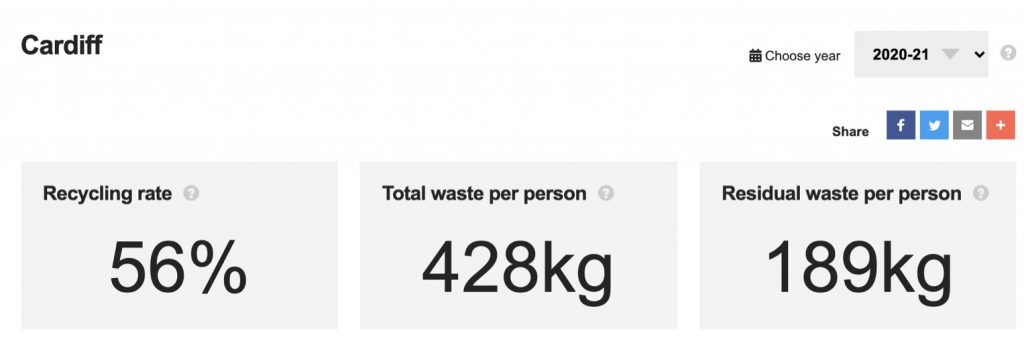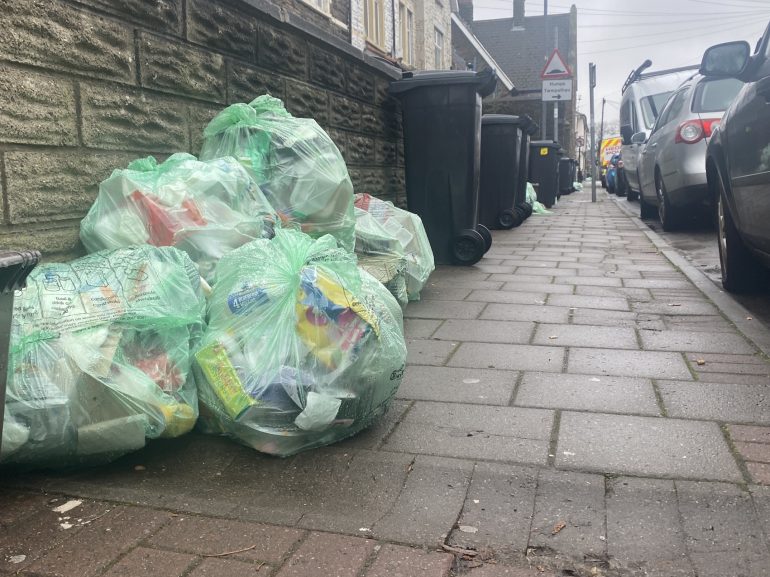Cardiff is lagging behind Welsh average and needs a new approach to reach targets
RESIDENTS of Cardiff are being encouraged to have their say on the future of recycling in the city during a six-week public consultation.
Cardiff is one of the best cities in the UK for recycling but falls below the Wales national average, so the council is looking for new ways to meet the Welsh Government’s 2025 recycling targets.
Wales was ranked third in the world for recycling, behind only Germany and Taiwan, in data published last November. The recycling rate was 65.4% (64% is the statutory minimum target).
However, in 2021 Cardiff’s recycling rate was only 56%, well below this figure. The Welsh Government wants Cardiff to get to 64% as quickly as possible and to 70% by 2025.

Michael Michael, Cabinet Member for Clean Streets, Environment and Recycling, said: “When comparing the recycling and composting rate in Cardiff to other major regional UK cities our figures are excellent and something we should all be proud of, especially our residents, who play a major role in helping us achieve these numbers.
“However, in recent years our recycling rate has flatlined and we now have to look at ways of getting that number moving up again. Since 2020, the overall recycling rate for the city dipped due to the pandemic.”
The next statutory minimum target of 70% for 2024-25 has already been achieved in four of the 22 local authorities across Wales.
Worryingly, the council says 30% of material collected for recycling is in fact dirty material such as food waste, nappies or medical waste that cannot be recycled. In 2020, 10,000 tonnes of this dirty material was then used as fuel to create energy as opposed to making new products.
Seven key initiatives are being put to residents to help improve the city’s recycling and composting rates. They can be summarised as a “full kerbside sort” or a “three-stream collection”.
Three-stream collection was rolled out in a pilot scheme in late January across 4,000 homes in Llandaff, Radyr, Pentwyn and Trowbridge, to replace single use green bags with sacks and caddies. Currently 24 million of these single-use green bags are used annually in Cardiff.
Residents involved in the three-stream collection system must separate:
- Glass into a new blue caddy
- Plastic, paper, card and tins into two reusable sacks (red and blue)
- Food into brown caddy
The council says that 23.7% of items placed in green bags kerbside and 41.4% of items collected from blocks of flats in green bags, were incorrect.
However, the pilot scheme has opened the debate as to whether the proposed changes make life easier for the residents or the council.
Sian Bagley, of Llanedeyrn, said: “I’m all for recycling and looking after the environment, and we as a household do as much as possible to help, but our garden is only the size of a hanky and it is getting filled up with ever increasing bins, sacks and boxes.
“They are too big for the kitchen and will get sopping wet outside. So, what to do?”
Joseph Maxwell, also from Llanedeyrn, said: “Council tax is high enough and then the public do the council’s work.”
Robert James, part of the pilot scheme, added: “Perhaps we should charge the council a monthly rental fee for storing their refuse containers on our property.”
Despite this, early indications suggest the pilot scheme has improved the purity of recycling collected. The contamination rate of material is said to have fallen from 30% to 5%.
In 2020 Cardiff Council spent £95,000 sorting incorrect waste in garden refuse bins, with some people reported to have hidden material at the bottom of bins, so collection crews would not reject them.
Despite the third place world ranking, scandals have followed Welsh recycling, with thousands of tonnes of waste sent to “unspecified” locations that were later traced to heaps of rubbish dumped in a Malaysian jungle.
Data shows this problem remains, with over 100 tonnes of Cardiff’s plastic sent to an unspecified location in Turkey.



